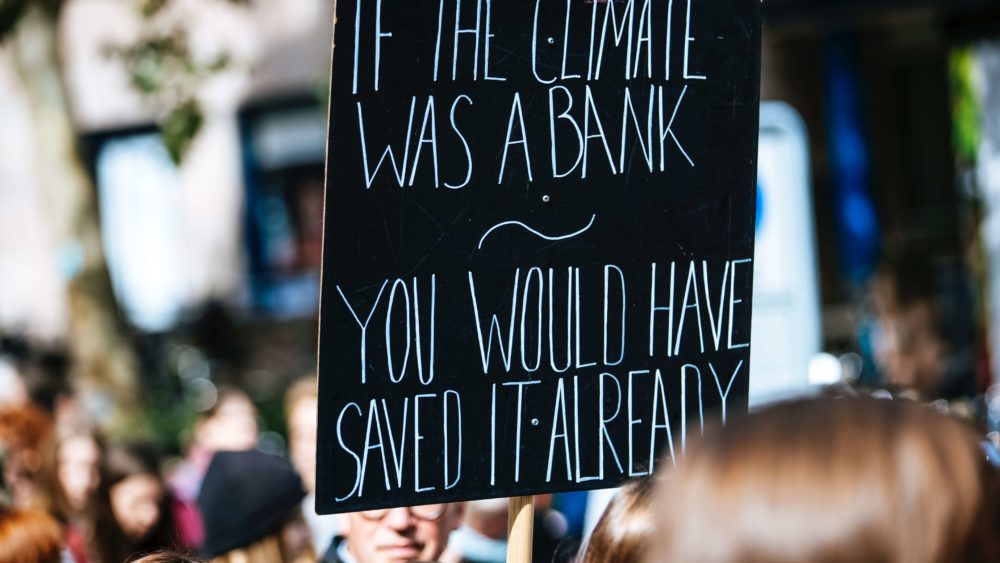Only radical political action can hope to redress the climate crisis.
The climate crisis is one of the most serious threats that mankind must face in the next decades. The substantial inertia that characterized the (in)action of governments in the last few years clearly showcases the political crisis of the European Union. Due to the rise of movements dedicated to addressing climate breakdown and demanding political action — movements that surprisingly engage people across ages and cultural backgrounds — green investments seem to be included in the EU agenda.
Recently, Ursula von der Leyen stated that the goal is to reach a 55% reduction of emission by 2030, through the mobilisation of at least €100 billion over the period 2021-2027. This number differs in a substantial way from the requests of some protest movements, like Fridays For Future and Extinction Rebellion which contested a ‘cheated’ communication from the EU. In an article titled ‘The EU is cheating with numbers — and stealing our future’, Greta Thunberg states the following:
“One of humanity’s greatest, present threats is the belief that real sufficient climate action is being taken, that things are being taken care of — when in fact they’re not. Not at all. The time for ”little steps in the right direction” is long gone and yet this is — at best — exactly what our leaders are trying to achieve. They are literally stealing our future right in front of our eyes.
The proposed 55%, 60% or even 65% CO2 emission reduction targets for the EU by 2030 are nowhere near enough to be in line with the below 1.5°C or even the “well below 2°C” target of the Paris Agreement.”
In an open letter, many public figures and activists are demanding climate action that meets the threat of climate breakdown.
A fundamental question therefore arises: how much effort is enough to face the climate crisis?
To answer this question, the starting point should be the considerations of the scientific community about the phenomenon. The scientific reference is represented by the Intergovernmental Panel on Climate Change (IPCC), an intergovernmental body of the United Nations established in 1988.
One of the most important special reports is the one which explains the potential dramatic impacts of global warming if this exceeds 1.5 °C above pre-industrial levels, and the related global greenhouse gas emission pathways to limit the rise of the temperature. The 1.5 °C rise is a level which would limit disastrous impact on the planet, impact that world, and some region especially, is anyway already facing. Indeed, we are already feeling the effects of the climate crisis with sea level rise and increased intensity and frequency of climate and weather extremes. A warming greater than 1.5°C is by now geophysically unavoidable.
The IPCC report states: “In model pathways with no or limited overshoot of 1.5°C, global net anthropogenic CO2 emissions decline by about 45% from 2010 levels by 2030, reaching net zero around 2050.” It also adds that: “Estimates of the global emissions outcome of current nationally stated mitigation ambitions as submitted under the Paris Agreement would lead to global greenhouse gas emissions in 2030 of 52–58 GtCO 2 eq yr −1 (medium confidence). Pathways reflecting these ambitions would not limit global warming to 1.5°C.”
Nevertheless, the IPCC proposes two pathways providing a one-in-two to two-in-three chance of warming either remaining below 1.5°C or returning to 1.5°C by around 2100 following an overshoot, depending on the velocity by which we will be able to implement such changes.
The current international agreement does not follow the advice of the international scientific community.
Moreover, it does not consider another fundamental aspect, also highlighted in the IPCC report: that of climate equity. In fact, most of the past and current greenhouse gases have been emitted by only several nations such as China and the United States. Event if most industrialized countries will be able to reach zero net emission by 2050, this action will preclude the possibility of underdeveloped countries to benefit from the same possibilities that Europe, US and China had to develop their economies, exacerbating the gap between them. Any Green New Deal must therefore ensure a just as well as sustainable transition, considering the implication of any deal for the Global South.
The scientific community gives us a guideline to judge the aptitude of any “green deal”. And any plan that does not lead a nation to reach zero net in 2050 is definitely not enough. Neither is any project that does not rapidly contain emissions before 2030, as the one proposed by Ursula von der Leyen. Moreover, it’s simply not acceptable not to consider the aspect of equity and the reasonable margins to contain the risks.
Up until now, the only credible plan to tackle the climate crisis is that of the Green New Deal for Europe (GNDE).
The Green New Deal for Europe is the most ambitious investment plan ever presented by a european party. On its own, a pure investment plan is insufficient to address the climate and environmental crises. Many attempts to limit greenhouses emission by non-binding agreements such as the Kyoto protocol have led to very poor results. A much broader legislative package is necessary to reign in environmentally destructive practices and realign policymaking with the scientific consensus.
A policy maker that does not take sufficient action against climate breakdown is implicitly choosing between two options: not believing in science, or accepting the catastrophic consequences of the climate crisis. Which one is the EU choosing?
Photo Source: Markus Spiske from Pexels.
Do you want to be informed of DiEM25's actions? Sign up here















